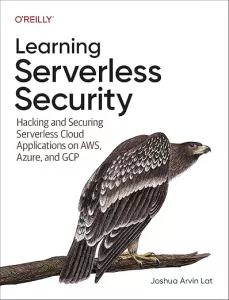Last updated on December 6, 2024
The AZ-400 Microsoft DevOps Engineer Expert certification is designed for professionals who want to demonstrate their expertise in implementing DevOps practices using Microsoft Azure technologies. This certification validates your ability to design, implement, and manage DevOps processes, including version control, build and release management, testing, and infrastructure as code. It optimizes development and operational collaboration to deliver scalable and secure software solutions.
The Exam Will Measure Your Skills in the Following Areas:
- Design and implement processes and communications
- Design and implement a source control strategy
- Design and implement build and release pipelines
- Develop a security and compliance plan
- Implement an instrumentation strategy
If you are eager to learn more about the AZ-400 Microsoft DevOps Engineer Expert exam, I recommend checking out the official exam skills outline. This study guide contains comprehensive review materials designed to help you confidently pass the exam.
Prerequisites
Before pursuing the AZ-400 Microsoft DevOps Engineer Expert certification, it’s essential to fulfill the prerequisite of holding at least one of the following associate-level certifications. These certifications ensure you have foundational knowledge and skills in Azure that are critical for mastering DevOps practices:
- Microsoft Azure Administrator certification exam:
-
- This certification validates your ability to manage Azure resources and services, such as configuring virtual networks, managing storage, and implementing Azure governance solutions. It’s ideal for IT professionals managing cloud services, including computing, networking, and security in a hybrid or cloud environment.
- Candidates for this certification are expected to have hands-on experience with Azure administration and a solid understanding of core Azure services, workloads, and security.
-
- Microsoft Azure Developer Associate certification exam:
-
- This certification focuses on the skills required to design, build, test, and maintain cloud applications and services in Microsoft Azure. It is tailored for developers who work with Azure SDKs, Azure CLI, REST APIs, and cloud storage.
- Candidates must have experience in at least one programming language (e.g., C#, Python, JavaScript) and proficiency in developing scalable, resilient cloud solutions.
-
These certifications serve as prerequisites and provide a strong foundation for understanding and implementing DevOps principles effectively. You only need to complete one of these certifications to qualify for the AZ-400 exam, but obtaining both can provide a more well-rounded perspective on Azure administration and development.
Study Materials
Prior to attempting the Microsoft Certified: DevOps Engineer Expert exam, it is highly advised to go through these study materials. These resources are specifically designed to aid you in grasping the intricate concepts and services that will be addressed in the exam.
- Microsoft Learn – this website offers a variety of learning paths for different Microsoft certifications. For the AZ-400 certification exam, you can focus on the following topics:
- Azure Documentation – the documents provide a comprehensive set of resources, including overviews, tutorials, examples, and how-to guides, which can help you understand various Azure services in depth.
- Azure Blog – to stay up-to-date on the latest technologies and offerings from Microsoft Azure, you can subscribe to their newsletter.
- Azure FAQs – the Azure documentation includes a comprehensive FAQ section that answers common questions about Azure services, use cases, and comparisons.
- Azure Free Account – the Azure portal offers a 12-month trial that gives you hands-on experience with Azure services. You’ll also get free credits to use for the first 30 days.
- Tutorials Dojo’s Azure Cheat Sheets – our cheat sheets make it easy to understand the information found in the Azure documentation. They are presented in a concise bullet-point format that highlights the essential concepts.
- Tutorials Dojo’s AZ-400 Microsoft DevOps Engineer Expert Practice Exams – our practice exams are consistently ranked among the best in the market. Each question comes with comprehensive explanations that will help you understand the crucial concepts you need to succeed in your Microsoft Azure certification exam on your first attempt.
Azure Services to Focus On
The Azure documentation is your primary source of information when studying for the AZ-305 certification exam. To understand the different scenarios in the exam, you should have a thorough understanding of the following services:
- Azure DevOps
-
- Gain a comprehensive understanding of managing the software development lifecycle using Azure DevOps tools, including collaboration, version control, and CI/CD pipelines.
-
- Azure Pipelines
-
- Learn how to automate builds, tests, and deployments using pipelines that integrate with popular version control systems and support multi-platform environments.
-
- Azure Repos
-
- Grasp the version control fundamentals with Git and TFVC, including branching, merging, pull requests, and code reviews for effective collaboration.
-
- Azure Boards
-
- Understand how to track work items, plan sprints, and manage backlogs with Kanban and Scrum boards, ensuring transparency and team alignment.
-
- Azure Test Plans
-
- Explore how to manage manual and exploratory testing, integrate test plans into CI/CD workflows, and track test execution to improve software quality.
-
- Azure Artifacts
-
- Learn how to store, manage, and share package dependencies securely across projects, ensuring consistency and efficiency in development workflows.
-
- Azure Monitor
-
- Gain insights into how to monitor Azure resources, collect telemetry, analyze performance metrics, and configure alerts for real-time monitoring.
-
- Azure Resource Manager
-
- Grasp how to manage infrastructure as code (IaC) using ARM templates, enabling repeatable and consistent resource deployments.
-
- Azure Key Vault
-
- Understand how to secure sensitive information such as API keys, passwords, and certificates, and learn to integrate Key Vault with other Azure services.
-
- Azure Kubernetes Service
-
- Gain expertise in deploying, managing, and scaling containerized applications using Kubernetes while integrating CI/CD pipelines for automation.
-
- Azure Application Insights
-
- Learn to detect and diagnose application performance issues, track user behavior, and monitor application dependencies to optimize performance.
-
- Azure Policy
-
- Learn how to define and enforce governance policies to ensure resource compliance with organizational standards.
-
- Azure Automation
-
- Learn how to automate repetitive tasks such as updates, configurations, and deployments using runbooks and Desired State Configuration (DSC).
-
- Work with Azure DevOps and GitHub
-
- Grasp how to automate code builds, tests, and deployments using GitHub integrated with Azure DevOps.
-
We suggest you check out Tutorials Dojo’s Azure Cheat Sheets, which provide bullet-point summaries of the most important concepts on different Azure services.
Validate Your Knowledge
If you feel confident after going through the suggested materials above, it’s time to put your knowledge of different Azure concepts and services to the test. Consider using the Tutorials Dojo AZ-400 Microsoft DevOps Engineer Expert Practice Exams for top-notch practice exams.
These practice exams cover the relevant topics and question types that you can expect from the real exam. Each question has a detailed explanation and reference links, so you can understand why the correct answer is the most suitable solution. After you take the exams, you’ll be able to see which areas you need to improve on. Combining it with our cheat sheets, we’re confident that you’ll be able to pass the exam and have a deeper understanding of Azure.
Sample Practice Test Questions:
Question 1
Your team is using Calendar Versioning (CalVer) to manage versioning for application releases. You need to specify a “patch“ segment to indicate small bug fixes or incremental updates.
Which segment of the versioning structure should you use?
- Minor
- Major
- Modifier
- Micro
Question 2
You are responsible for managing the deployment of a web application named WebAppDojo hosted on Azure App Service.
You need to implement an automated solution that blocks the deployment of WebAppDojo to production if the new release fails to meet the defined performance baselines.
Which of the following options should you configure to achieve this requirement while minimizing manual effort?
- Azure Monitor alert rules
- Azure Pipelines deployment gates
- Azure Automation runbooks
- Azure DevOps release approvals
For more Azure practice exam questions with detailed explanations, check out the Tutorials Dojo Portal:
Final Remarks
The AZ-400 Microsoft DevOps Engineer Expert certification exam is a challenging but rewarding opportunity to validate your expertise in implementing DevOps practices using Microsoft Azure tools and services. By mastering the key concepts and gaining hands-on experience with the services highlighted in this guide, you will build a strong foundation to succeed in the exam and excel as a DevOps professional.
Lastly, get enough rest and stay confident in your preparation. Manage your time wisely during the test and review your answers, especially for case studies and yes/no questions. If you feel unprepared, remember you have the flexibility to reschedule. Good luck, and we wish you every success on your certification journey!























